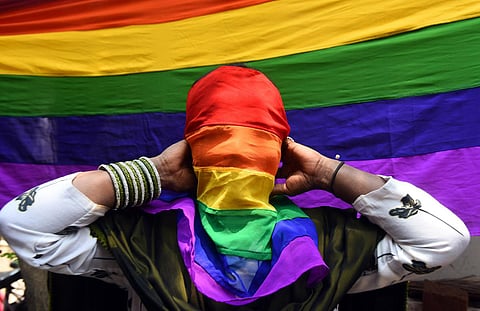

In 2019, the Dravidar Kazhagam (DK) released a manifesto, a part of which called for the inclusion of “orinacherkkayalar” — the term then in vogue to refer to gay persons — into mainstream society.
This was a big thing: An influential political organisation considering queer concerns important enough to include in its manifesto ahead of a parliamentary election. The DK is the ideological parent of the two major political parties in Tamil Nadu.
Queer activists, however, had concerns about the terms used and the disrespectful way this came across. Activists called out the DK on this, and after some discussion the organisation issued an apology and took steps to use the right terms.
This is an example of two things: 1. A political organisation taking note of queer concerns and realising queer justice is important for social justice. 2. A political outfit that course-corrected after being called out. The first seems to be more and more in evidence these days, but not the second.
The DMK, currently in power in TN, has a big social justice agenda. Ahead of the 2021 Assembly elections, and as soon as it came to power, some of its prominent members spoke about supporting young queer persons in schools and colleges, enacting anti-discriminatory laws, devising and implementing a state-level queer policy, and more.
Much of this has remained mere proclamations, with scant action on the ground.
Take the state-level policy for queer people. There was, in 2021, a meeting organised by the State Planning Commission. We were happy that action was to be taken, and that we would be involved in shaping a policy for us. In attendance were some more prominent activists, largely trans women, a couple of trans men, but very few persons on other identity spectrums. Perhaps this was the first step. Surely there would be more meetings and consultations? No.
Some activists were asked if they were free to attend further meetings. And then, silence.
Recently, we heard the policy was ready, and the commission had submitted a document to the chief minister. But we have heard nothing since. Is this a transgender persons policy? A larger queer policy? We don’t know. No one knows who or what was consulted in drafting this policy, what issues are being addressed, what recommendations the policy carries or when it will be released. Some activists and journalists have asked the commission these questions, but have received very few answers.
Meanwhile, trolls and abusers, many of them sympathetic to the DMK, target women, queer people, and others who dare criticise the government. The social media trolls, especially those who dub themselves Dravidian Stock, (a term that Arignar Anna, DMK’s first CM, used to describe himself. The term, once a badge of pride, has now been tarnished) use sexist, homophobic, transphobic and casteist abuse against their rivals. Apart from some murmurs by the party leadership no action has been taken to tame them.
I was a contributor to a bilingual Tamil-English glossary of queer self identity terms. The team that built the glossary was thrilled when the Madras High Court directed the government to follow this glossary in designing state policy and instructed media houses to adopt it. It was momentous for us. Subsequently, there were a few meetings organised by the social welfare department to fine tune the glossary. In attendance were some of us who worked on the glossary, and a few other activists. And then silence. Till the government issued a gazette notification.
The official glossary — while largely true to the one we had created — differed from it in very significant ways. Some of these changes were antithetical to the spirit that guided the glossary: to be respectful of individuals and their lives. In some places the government glossary actually regressed to terms that the community has outgrown over the last decade.
We called this out, in the media and in private. But the government has maintained a stoic silence.
It always hurts more when our favourites, when people we expect to know better, hurt us. For the DMK government, this may not be a priority. But, for a party and a government that claim to be people-oriented, their silence on queer social justice is particularly deafening.
Mere edicts without action on the ground
DMK spoke about supporting young queer persons in schools and colleges, enacting anti-discriminatory laws and implementing a state-level queer policy. Much of this has remained mere proclamations, with scant action on the ground
Footnote is a weekly column that discusses issues relating to Tamil Nadu
Nadika Nadja is a writer and researcher with interests in history and archaeology, gender, technology and the internet